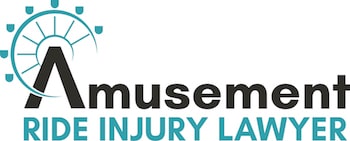The Difference Between Settlement and Lawsuit
The legal terminology can be overwhelming for someone who is considering taking legal action after an injury. If you are considering contacting an attorney to represent you on a personal injury matter, they will be able to advocate for you and use their knowledge of the law to help you. However, learning a few terms could also help you make the right decision and feel that you have more control over the situation. Two terms that are used in personal injury cases are settlement and lawsuit and the difference is essentially how compensation for the injury is reached.
Settlement
In a personal injury case, there are two ways to reach the conclusion of the case, and get the desired outcome for injuries, which is compensation. Compensation can be achievable by both parties reaching an agreement. An agreement would require the victim and the insurance company of the defendant to decide on a claim value. This agreement is called a settlement, and it occurs out of court. A settlement essentially means that the responsible party is agreeing to paying for loss or damages, but does not have to go before a judge or admit to guilt.
On the other hand, when a claim value cannot be determined, and the insurance company and victim cannot agree on an amount of compensation, further action can be taken. For example, if the defendant does not believe that they are guilty of anything and is not responsible, they may not agree to paying any amount. Another possibility is that the defendant believes that they are responsible but does not agree with the amount of money that the victim is claiming for losses.
Lawsuit
The next step in the process, if a settlement cannot be reached, is filing a lawsuit. Any personal injury victim has the right to file a lawsuit. When a lawsuit is filed with the court by the victim’s attorney, it is stating who is involved, and what the legal basis is for the lawsuit. The claim will state the dollar amount that is being requested as compensation for loss and injury. The plaintiff can reach this amount while still getting treated and recovering from injury or wait until they are done with treatment, and have a more accurate amount of money to request.
The defendant is then served with the complaint and has a certain time limit to respond. If the defendant does not respond to the complaint within this time, usually it is about 30 days, an automatic judgement will be made on the case. If the defendant responds they can continue to try and come to an agreement and settle the case.
If an agreement still cannot be reached on a settlement, the case can go to trial or the case can be dismissed based on the legal basis of the claim or a judge’s summary decision. If the case goes to trial, the facts and evidence are brought forth and a decision will be made for both parties by a judge. If you have been injured at an amusement park, water park, or carnival and you need assistance with your case, call and speak with an attorney.

